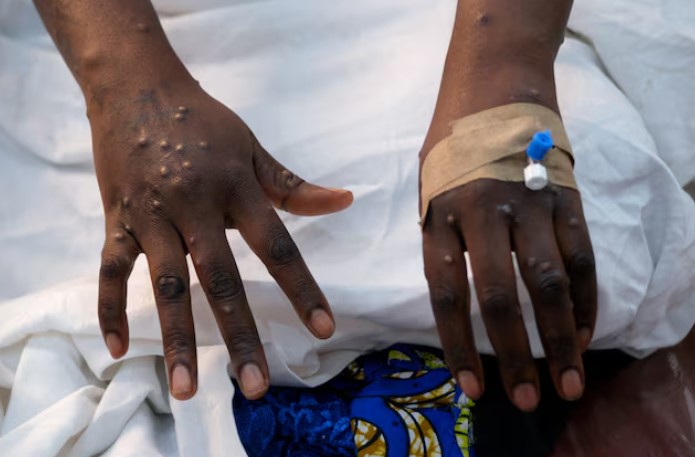Mpox cases on African continent show 500% increase year-on-year

Nineteen African countries have seen more than 48,000 suspected mpox cases including 1,048 deaths so far this year, according to the public health agency's data.
Mpox cases continue to spread on the African continent, showing an increase of over 500% from last year, data from the Africa Centres for Disease Control and Prevention (Africa CDC) showed on Thursday.
The World Health Organisation declared mpox a global health emergency in mid-August, after a new strain began spreading from the Democratic Republic of Congo to neighbouring countries.
More To Read
- Adult obesity treatment enters new era with WHO-endorsed GLP-1 drugs
- Flu shots: how scientists around the world cooperate to choose the strains to vaccinate against each year
- Study flags stark inequities in global epilepsy care, medication
- WHO warns of measles resurgence as vaccine gaps widen
- WHO launches first global guidelines on infertility, calls for safer and more accessible care
- WHO warns of rising antimicrobial resistance in fungal infections
"The situation is not yet under control, we are still on the upward trend generally," Ngashi Ngongo from Africa CDC told a briefing.
Nineteen African countries have seen more than 48,000 suspected mpox cases including 1,048 deaths so far this year, according to the public health agency's data.
Central Africa, which is the most hit by the outbreak, accounts for 85.7% of cases and 99.5% of deaths on the continent.
The virus can be transmitted through close physical contact, including sexual contact.
Its new strain, known as clade Ib, is also spreading to Europe and was detected in Sweden, in Germany and in Britain.
"We need to continue mobilising the political engagement and also mobilising the financial support that is critical to get the current outbreak under control," Ngongo said.
"We do not want this mpox, especially the clade 1b, to become another sexually transmitted pandemic, which would be much more severe than COVID-19."
Other Topics To Read
Top Stories Today












































